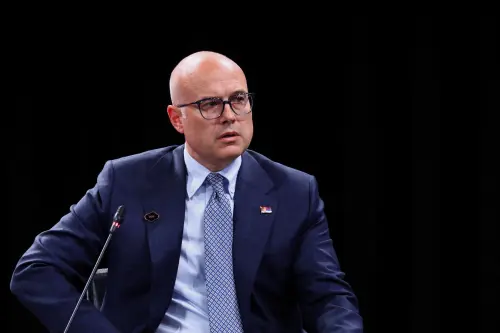Serbia's parliament has formally accepted the resignation of Prime Minister Milos Vucevic, initiating a 30-day deadline for forming a new government or calling for a snap election.
Vucevic, leader of the ruling Serbian Progressive Party and an ally of President Aleksandar Vucic, resigned following protests that erupted after the collapse of an awning at a train station in Novi Sad last November, resulting in 15 fatalities.
Over 100,000 protesters gathered in Belgrade, asserting that the train disaster highlighted widespread corruption and mismanagement, claims the government has denied.
Under the constitution, President Vucic has 30 days to propose a new prime minister-designate to lead until the next scheduled parliamentary and presidential elections in 2027. Parliamentary speaker Ana Brnabic announced, "The Serbian parliament has acknowledged the resignation of the Prime Minister and the government mandate ends... The deadline for the new government is April 18 at midnight."
Should Vucic fail to appoint a new prime minister-designate within the deadline, a new election would be triggered within 45 to 60 days. The parliament session, which started on March 4 and included Vucevic's resignation as the final item on the agenda, was marked by protests from opposition lawmakers in support of demonstrators.
These nationwide protests have shaken Vucic, who has maintained power since becoming prime minister in 2014 and president in 2017. Beginning in Novi Sad, the protests have spread throughout Serbia.
It remains uncertain how Vucic's allies would perform in a snap election. A December poll by IPSOS Strategic Marketing indicated that the SNS enjoyed 48.3% support among the electorate, though public sentiment against the government has intensified since then. Opposition parties have rejected the prospect of an early vote and are calling for an interim government without the SNS, a suggestion Vucic has consistently dismissed.
